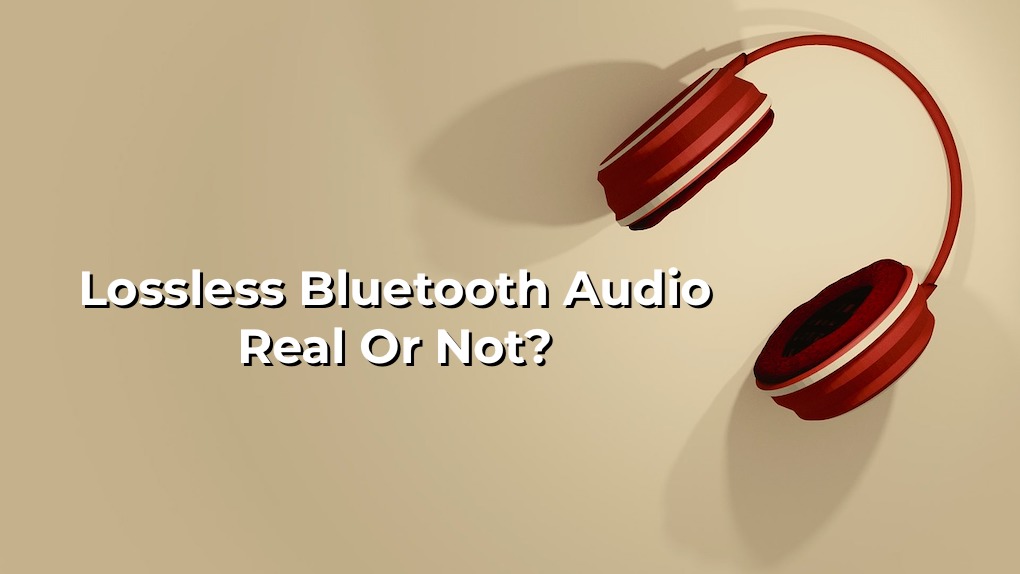Lossless Bluetooth Audio Is Here – Or Is It?
A while ago I posted about the new Bluetooth LE standard, which supposedly would finally bring lossless wireless audio to the world. If you want to wire up your headphones, you can easily listen to CD-quality or hi-res audio, but putting on those Apple Airpod Max’s or earbuds were a different story. But we’re beginning to discover that the promises lossless Bluetooth audio are not quite going to be met, even though quality should get better.

The Codec
First of all, the Bluetooth transmission standard is one thing, but you need an audio codec to translate the audio in your device. That means that even if your phone, tablet or computer is all revved up with Bluetooth LE, you’re going to need a codec in your headphones to achieve the results you’re hoping for.
What’s a codec? In order to transfer music via Bluetooth, the data packets containing the music file must be compressed in the mobile phone and then unpacked again in the playback device. In other words, they are coded (the CO in the codec) then decoded (the DEC in codec).
Here’s the thing – in order to achieve true CD quality, the data rate has to be 1,411 kilobytes per second at a sample rate of 44.1kHz and a bit depth of 16 bit, which is exactly the specs of a CD being decoded by a CD player. The problem is that even the latest codecs generally fall down on the data rate end, even though they may transmit at 96kHz and/or 24 bit.
To make it more complex, there are 7 codecs that your device may use. They are:
- SBC
- AptX (HD)
- AptX Lossless
- LDAC
- LHDC
- AAC
- LC3
I won’t go over all of them here (you can go here for that), but understand that SBC (which stands for “Low Complexity Subband Codec”) is sort of the baseline codec that an inexpensive device might have. It’s capable of streaming at up to 345kps at 48kHz, and it’s not meant for music, even though a lot of devices us it for that.
aptX Lossless
Let’s focus on Qualcomm’s new aptX Lossless codec, which is garnering a lot of press lately.
aptX Lossless promises to stream 16-bit/44.1kHz, CD-quality audio over Bluetooth, which sounds good on a spec sheet. The problem is that the data rate only goes up to 1,200kbps, which is still below the 1,411kbps data rate that comes off a CD, meaning that it’s still slightly compressed. Of course, you can’t take advantage of this unless you have headphones or earbuds that use this codec, and right now there are very few (the NuraTrue Pro’s are in the news a lot).
Now let’s take this another step. You’ll only find aptX Lossless on Android phones, so if you’re an iPhone user, you’re stuck with the standard (but good sounding) Apple AAC codec, which specs out at up to 320 kilobits per second at 24-bit and 96 kilohertz. Apple also has Apple Music Lossless, but none of its devices can play it unless it’s wired to the device.
All the other codecs on the list above offer improved fidelity, but still fall way short of true CD-quality data rates. LDAC and LDHC are Sony codecs that you’ll find on its gear (which is why you have to download the app when you buy their phones – you’re downloading the codec). LDHC does go almost up to 1,000kbps though.
Bottom Line
The listening tests so far on aptX say that it’s a minor improvement and not quite the revelation that everyone expected. Not that it matters much as the codec isn’t that widespread.
As for Bluetooth LE, remember that the LE stands for “low energy” which is what the standard emphasizes. Improved audio (if there is any) is just a byproduct.
As you can see, true lossless Bluetooth audio isn’t really lossless yet, but at least we’re making progress.

